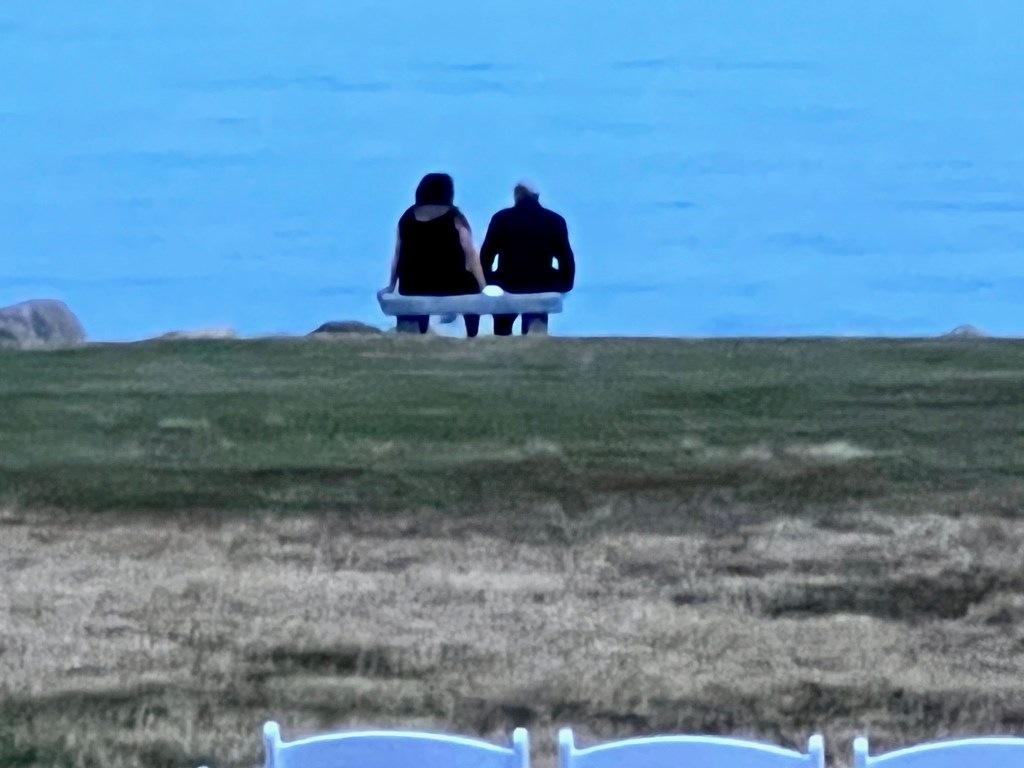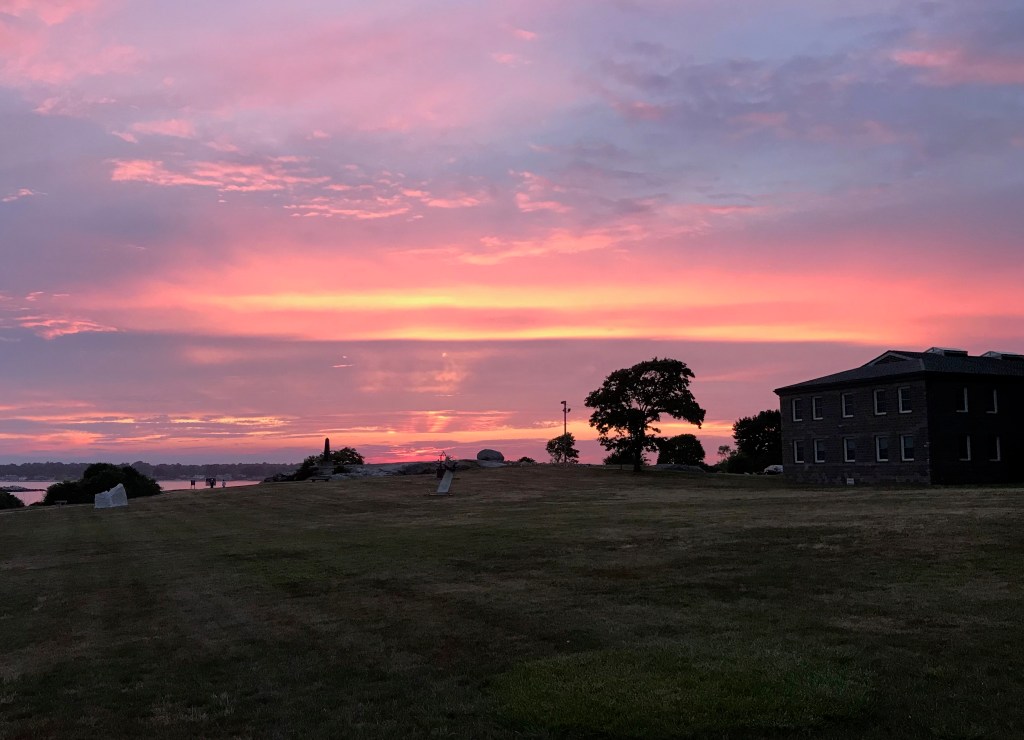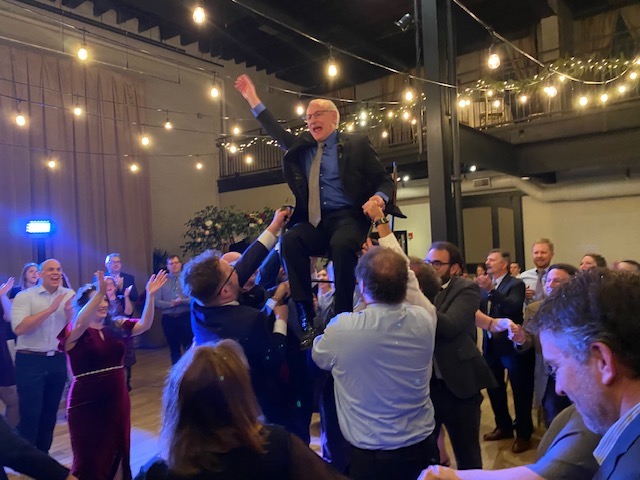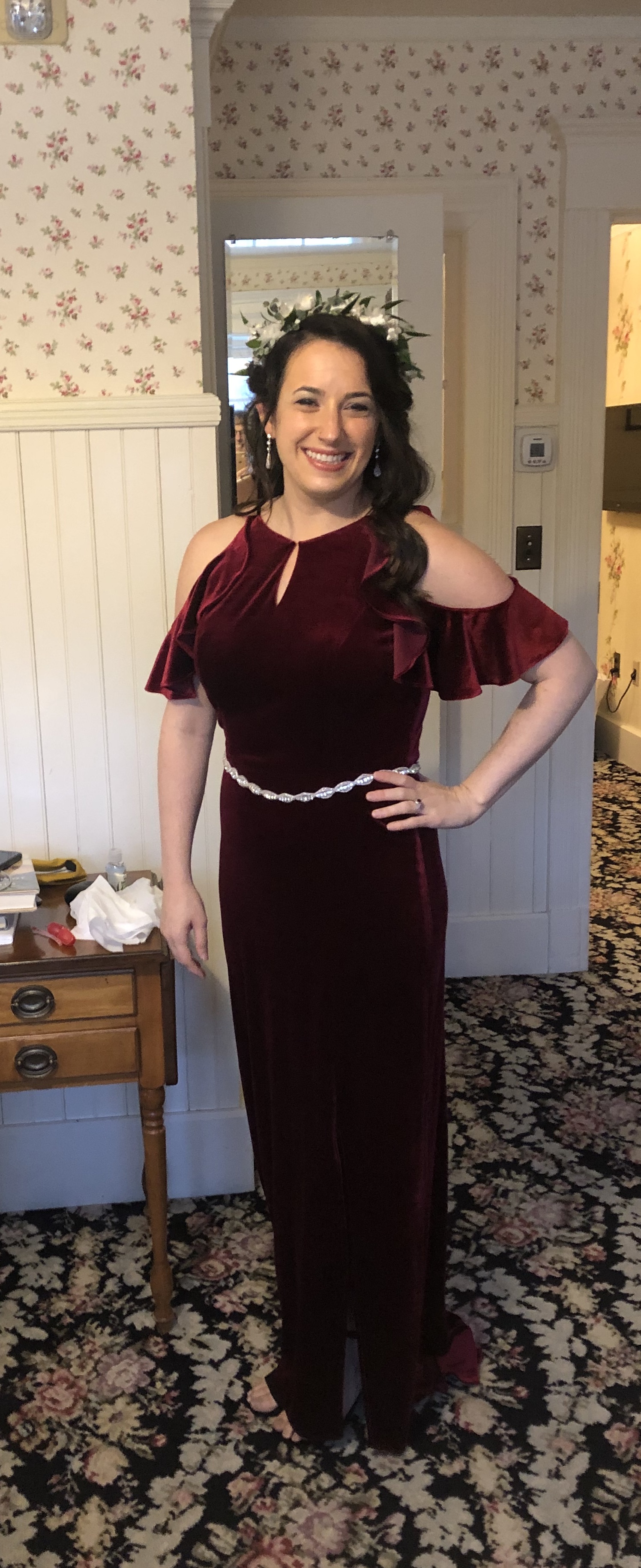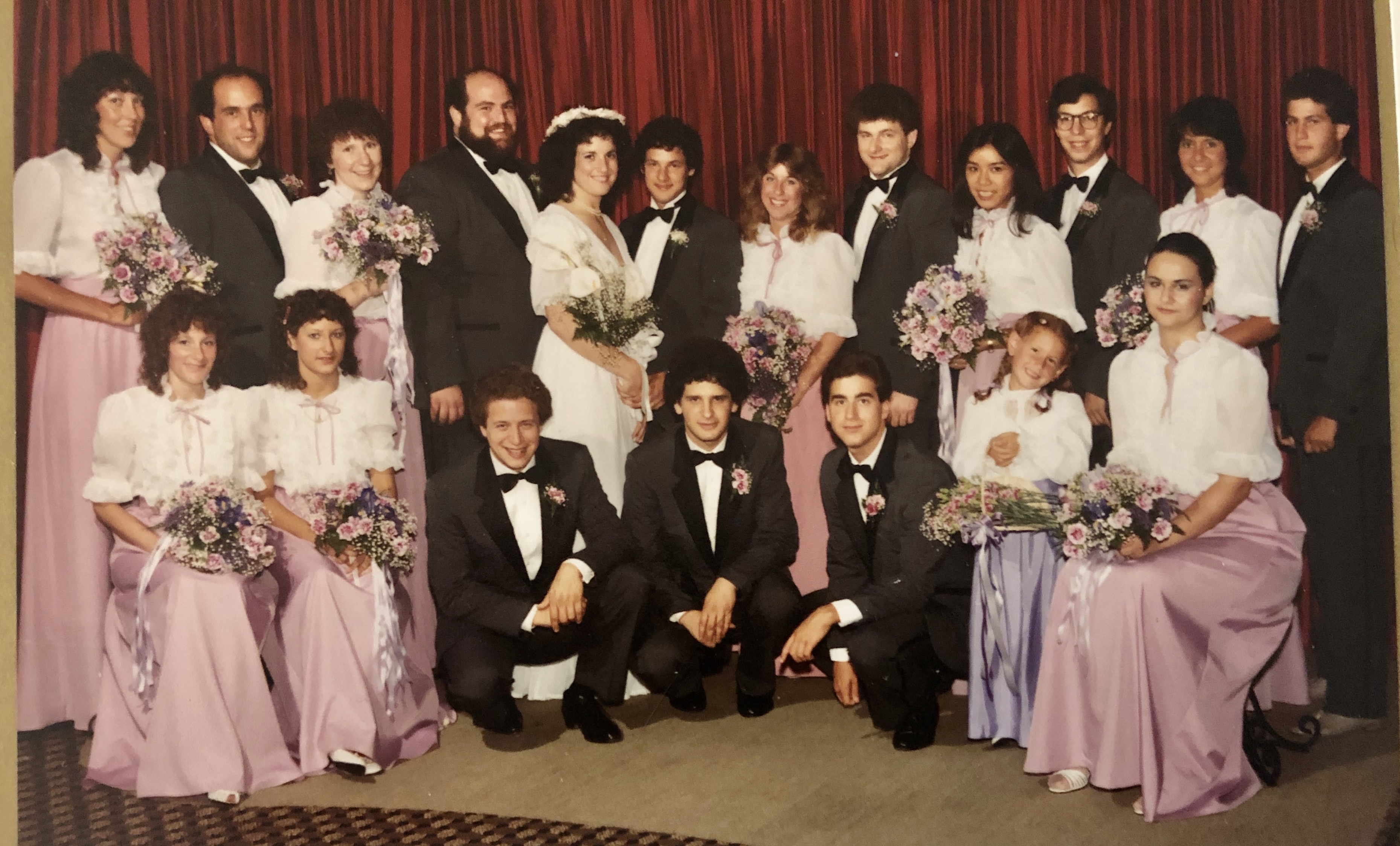Our family gathered in Groton, Connecticut for a wedding this past weekend. We converged on the Mystic Hilton, coming from upstate New York, New Jersey, Massachusetts, Virginia and California. On Friday as we were each on our way, my brothers and I received a text from our aunt reporting that she and my uncle ‘made a stop to tell our loved ones the good news about our trip,’ meaning they visited the cemetery in Saddle Brook, NJ where my father, uncle and Nana (among other family members) are buried and shared the happy news of the upcoming nuptials. She included several pictures of the graves. I appreciated that they had done that, as irrational as the gesture may be.
I don’t believe that going to my father’s gravesite puts me closer to his spirit, but at the same time visiting is a demonstrable show of respect. In the Jewish tradition, when you visit the grave, you leave a small rock or pebble on the headstone as a tangible sign that someone was there – at least that’s the reason I have in my head and heart when I do it (there is likely some obscure reason for the ritual that dates back to ancient time, but I have no knowledge of it). I was glad that my aunt and uncle did it on our behalf. When we gather for these milestone events, it is bittersweet. We are thankful that we have something so special to celebrate, but also painfully aware of those who are no longer with us.
While chatting with one of my cousins, I mentioned that my aunt and uncle had done this, and she explained that for her going to the cemetery was an empty experience. Her mother died 35 years ago, and she still feels her mom’s spirit with her all the time, she is in regular communication with her (just to be clear, she didn’t mean that literally) but she doesn’t feel anything at her gravesite. I know other people feel the same way and have no need to go. My cousin wasn’t casting judgment on those who find meaning in a visit, but it just doesn’t do anything for her. On the other hand, I have a friend who visits her parents’ graves regularly – she finds it comforting. I’m trying to decide how I feel about it – not just with respect to loved ones who have died, but also in terms of what I want for myself.
This isn’t a subject most people want to talk about – all topics revolving around death tend to make people uncomfortable. I have always found it interesting and, more than that, important. I want to sort out my conflicting emotions, in part to plan for it so my children aren’t left with painful decisions when the time comes.
I have a recollection of an irreverent George Carlin comedy routine where he lamented that cemeteries were a waste of space. He suggested the land could be better used for affordable housing! (He was equally merciless about golf courses). Seriously, it is reasonable to ask whether our burial practices make sense from a use of resources and an ecological point of view. Is it sustainable?
Some of our feelings about this are probably the product of the traditions, either religious or cultural, we observed growing up. In my mother’s family, when she was a child, they went to the cemetery at least annually to pay their respects. She even remembers picnicking there! For her those were warm memories. The departed were still included in their lives. Though that tradition was not continued in my childhood, we never picnicked, I was aware that Mom and her brothers went at least yearly to the cemetery. As an adult, after my dad died, I took Mom to the cemetery a few times. Dad is buried in Mom’s (the Spilkens’) family plot, he lies near his mother-in-law. In life he loved being part of their family, it seems appropriate that he rests there. There is a spot for Mom, when the time comes, next to Dad.

Cremation was not considered when Dad died. It is my understanding that cremation was frowned upon among Jews. That attitude seems to be changing, and apparently was not rooted in agreed upon Jewish law. More Jews are choosing that option these days. Then you have to decide what to do with the cremains – scatter, bury/place in a mausoleum or keep in an urn somewhere. For other Jews, like my husband, irrespective of tradition or law, the legacy of the Holocaust makes this an unacceptable option.
On our drive back home from the wedding I asked Gary what he thought about all of this, including whether it was meaningful to visit the cemetery. He finds comfort in the idea of leaving a marker behind. He also expressed a desire to go to visit his dad, who is buried in Liberty, about a 2 hour drive from our home. Regardless of whether we go regularly, or not, Gary believes it is fitting that his dad’s existence has a marker, a place and a stone that memorializes his life that will be there for decades, maybe centuries, to come. He wants that for himself, too. Gary noted that he had not visited deceased family, he was thinking especially of his Bubbe, who are buried on Long Island in many, many years. He would like to, but couldn’t see making a separate trip, it is long and inconvenient, only for that purpose. If we were traveling in the area, then he would make a point of going. The location of the cemetery is obviously a factor in the frequency of visits.
Though I can’t articulate my reasons, it is important to me that I visit Dad’s grave once in a while – I can’t say how often it should be, though annually feels about right. I think of my dad all the time of course, but there is something about the visit to the site that formalizes it. Time and effort are carved out to honor my relationship with him by being there, looking at the inscription on the stone and placing a pebble on it to signify my presence. I am glad I can pay my respects to Nana and Uncle Mike at the same time.
I am of two minds for myself. I like the idea of being scattered in the wind, in a particularly lovely spot. I also see the appeal of leaving a marker, even if my children and grandchildren don’t visit. There would be a place where my existence was noted. I suppose the two are not mutually exclusive. Perhaps that is the answer I’ve been looking for – my cremains strewn about a lovely spot, (could they fertilize a garden?), and a memorial marker somewhere (a bench in Central Park?). Maybe I’m on to something here.
Do you visit loved ones at the cemetery? Does it feel meaningful? What do you want for yourself?
It is ironic that this piece started with the family gathering for a wedding but explored our recognition of death, but that is the nature of life. We gather for these events. The judge who officiated the ceremony, and it was a beautiful one, began with “Dearly beloved….,” just a word away from “Dearly departed…” It is all of a thread.
